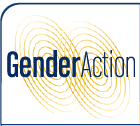|
In recent years the IFIs have financed numerous environment
projects and they are reemphasizing infrastructure investments
that were their mainstay in their early years. Inevitably
infrastructure projects have environmental impacts. IFI projects
need to address the infrastructure-environment-women nexus
since women are the primary natural resource managers in most
countries, and are highly vulnerable to trafficking, prostitution
and HIV that often accompanies male construction crews that
build IFI-financed mega-projects.
In the updated 2005 version of Reforming
the World Bank: Will the Gender Strategy Make a Difference?
A Study with China Case Examples, Gender Action further
explores this nexus in China where the IFI portfolios are
heavily weighted in favor of infrastructure and environment
projects like development of waterways, energy sources, transportation
and treating wastewater.
Gender Action also monitors the gendered impacts of IFI funded
Extractive Industry (EI) projects. At the request of our partner,
Central and Eastern Europe (CEE) Bankwatch, Gender Action
completed a gender analysis of the Baku-Tbilisi-Ceyhan and
Sakhalin II pipeline project documents and drafted Terms of
Reference to guide field work. Our findings were published
in late 2006 in a joint report titled, Boom-Time
Blues: Big Oil's Gender Impacts in Azerbaijan, Georgia, and
Sakhalin. Through fieldwork interviews Boom Time Blues
found that IFI financed pipeline projects have let to a dramatic
rise in prostitution, human trafficking, HIV/AIDS, and violence
against women. Our report recommends ways IFIs should prevent
and address the tragic gender impacts of their investments.
Boom Time Blues received significant press and spurred the
World Bank to create a webpage dedicated to Extractive
Industries and Gender which calls for "the improvement
of the impact of extractive industries on women." Since
historically Bank web pages do not translate into more gender-sensitive
investments, Gender Action continues advocacy holding the
Bank to its promises. For example, in 2006 we joined the Publish
What You Pay Campaign to bring the gender dimension to an
advocacy coalition helping citizens of resource-rich developing
countries hold their governments, corporations and the IFIs
accountable for the management of revenues from the oil, gas
and mining industries.
The World Bank itself recognizes that its infrastructure
programs do not address gender issues. In 2003, a World Bank
analysis of the extent to which its Country Assistance Strategies
(CASs), that set the stage for Bank investments, address gender
issues, concluded that, "While almost 23 percent and
21 percent of the CASs proposed gender-specific actions in
the education and health sectors respectively, just over 4
percent of the CASs proposed such actions in the infrastructure
sector."
Read
Gender Action Consultant Suzanna Dennis's blog on climate
change here!
|
